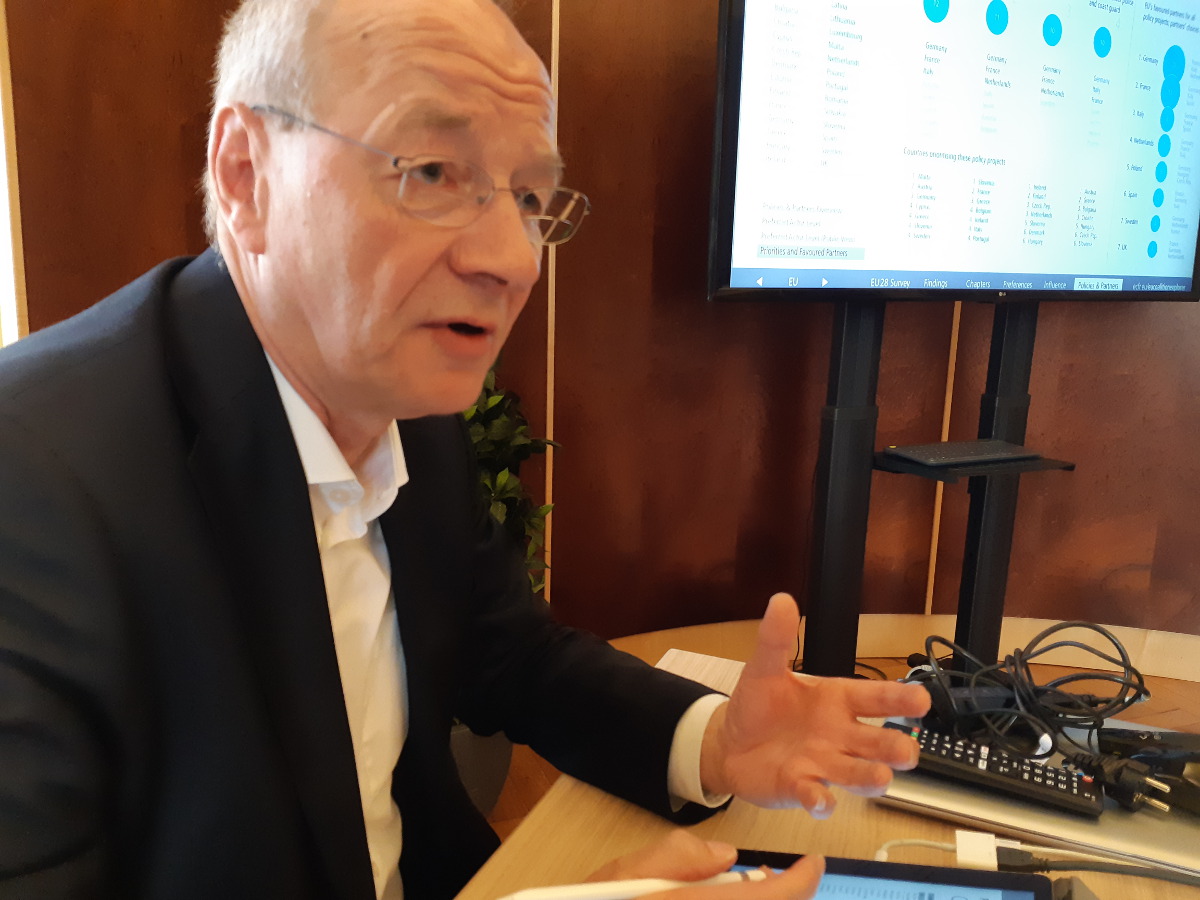Shabka sat down with Josef Janning, head of the Berlin office of the European Council on Foreign Relations (ECFR), to discuss Austrias position in European politics, how to fight fragmentation within the European Union and the future of European security and defence policy.

“Currently Austria not an active player within the European Union”, such is the verdict of a comprehensive study the ECFR conducted on relations and options for cooperation between the 28 EU member states. Josef Janning’s analysis of Austria’s position within the European Union should provide food for thought for Austrian politicians and decision-makers. Being very much focused on Germany and receiving little response in its attempts to relate to other major member states, Austria is not using all of its potential.
In the degree to which Austria and its Eastern and Central European neighbours are looking for cooperation, another problematic gap emerges. While there is some indication that Austria is considered to be an important member by its Eastern neighbours, Austria is not responding to these signals. On the contrary, as the dispute over the indexation of family benefits shows, Austria is rather isolating itself further in European politics.
Austria building bridges?
When asked of his opinion on how Austrian politicians like to present Austria as “building bridges”, Mr Janning could not help but emit a soft laugh: “Austria building bridges? That’s a cliché, just as the Weimar triangle is.” He would like to see that changed, however. Austria should be more engaged in the forging of compromises. Reciprocal relationships are key and engaging with other countries, rather than “telling Berlin: we are on your side” would also diminish the nuisance value of Austria to Germany over the long term.
A lack of cooperation is a problem faced not only by Austria but the European Union as a whole. According to ECFR analysis, within the EU there are few structures of cooperation that go beyond bilateralism. Alliances which used to be influential, such as the founding members and the alliance between France, Italy and Spain- the only triangular relationship of strength within the EU- are broken down. The Visegárd countries are “focused mainly on themselves”. This degree of fragmentation represents difficulties in EU policy making.
Why not work together more?
In the wake of Brexit, a revaluation of existing cooperation will necessarily have to take place and while building satellites around principle larger member states remains an option, another, and one far more interesting in terms of integration policies, is to encourage smaller and richer member states to form groups themselves. To the Nordics, Benelux and Austria, who often lament of being neglected in the decision-making process, Mr Janning pointedly asked: “Why don’t you work together more? Combined you have more GDP than France!”
Furthermore, Mr Janning argues that simply bringing together like-minded countries will probably not be enough: “Compromise is about actors working together who do not initially share the same views, but who are willing to find a policy on which you can then agree on. From the Franco-German relationship we know that the strength of this relationship is not that it is like-minded but convinced to come to agreement.”
When asked about the future of EU security and defence policy and how Austria’s neutrality principle will come to play in this development, Mr Janning’s response was damning: “Where the EU is in its neighbourhood today, neutrality to me is anachronistic. Neutrality of EU member states is freeriding.”
He continued: “The more Europe takes ownership of its own security, the more we will ask ourselves why are we organising security and defence in a totally different way than we organise our markets. Everyone knows economies of scale are part of our wealth, however nobody is ready to really apply that to defence. But we do not have the time to wait until we are ready.” In that sense, it will probably not be possible to reach a more united EU defence policy by a principle decision, like the Treaty of Rome was set up to create a common market. Without a founding moment, “backdoor processes” will have to be employed.
EU drone fleet
The Permanent Structured Cooperation (PESCO) is one such process. On the condition, clarified Mr Janning: “that PESCO will provide the EU with commonly owned, funded and maintained assets of military relevance, such as a drone fleet or a military Galileo system.” The EU would need to start beginning to staff such assets with European rather than national personnel, which will always remain seconded to nations. He added: “Otherwise the EU faces the same problem NATO has faced with its AWACS. Whenever AWACS are to be flown by German soldiers, the German parliament has to consent first, which to me is total nonsense.”
Instead of fundamental debates, EU member states should start to practically integrate military structures, a level of cooperation that already exists between the Netherlands, Germany and Belgium. Future EU commission president Ursula von der Leyen tried scale this approach during her time as German defence minister and get similar bilateral agreements with other member states. “We would not need a decision about a European army first but instead bring together armies that exist and ultimately ask ourselves: Why do we not do procurement together? Why do we need still several military command structures? Why can we not have just one territorial defence command with all organised forces under it?”, argued Mr Janning.
Decisions which seem to make a European Union of several speeds unavoidable. Whether such an approach will work for a union ever more fragmented and divided remains to be seen.
Further readings
If you are interested in finding out more about the research done by European Council on Foreign Relations, see:










